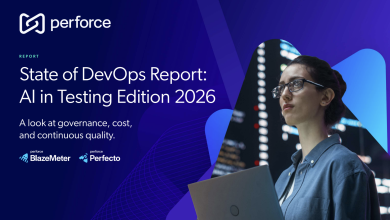The commercial real estate (CRE) sector, with its inherent complexity, has long been the domain of appraisers who bear the burden of vast data, often resorting to spreadsheets, intuition, and laborious manual review. Now, artificial intelligence is rewriting this narrative, empowering appraisers with the tools to enhance both speed and precision, liberating them to focus on higher-value insights.
AI’s greatest strength lies in its ability to transform unstructured data into intelligence. What once took an appraiser close to an hour, such as parsing a lease or analysing zoning restrictions, can now be completed in a matter of minutes. Beyond efficiency, these tools are raising the quality bar, ensuring that machine learning models can surface hidden correlations, run regression analyses, and visualise trends in ways that were once inaccessible without a team of analysts. For an industry where timing and accuracy dictate billions in value, the implications are not just significant, but also reassuring.
This technological shift isn’t just about productivity; it’s redefining the role of the appraiser. Instead of focusing on “data grunt work,” valuation professionals are increasingly positioned as strategic interpreters of AI-driven insights. The Altus Group describes this as appraisers evolving into “master conductors,” orchestrating autonomous agents to handle repetitive functions while they bring judgment, context, and client-ready analysis. It’s a model that enhances human expertise, underlining the value and importance of the appraiser’s role.
One of the most compelling aspects of AI in valuations is its capacity to expand demand. With automated workflows, updated appraisals could move from quarterly cycles to monthly, weekly, or even daily refreshes. This level of frequency unlocks proactive risk monitoring, allowing stakeholders to spot vulnerabilities before they escalate. As one CRE leader noted, the industry has seen this pattern before: just as cheaper cloud storage drove more storage usage, faster and smarter valuation tools are likely to drive more frequent, more detailed valuations. This increased demand for valuations could lead to a more dynamic and responsive real estate market, with stakeholders making decisions based on the most up-to-date information.
But with power comes responsibility. Transparency and client trust remain essential pillars. Disclosing AI’s role in the appraisal process isn’t optional; it’s an extension of longstanding industry practice. And while some stakeholders may hesitate to embrace AI due to regulatory caution, the broader consensus is clear: these guardrails will fade as the technology proves its reliability and ubiquity. However, the integration of AI into CRE practices is not without its challenges. Appraisers may need to undergo training to understand and use AI tools effectively, and there may be initial resistance to change. It’s important to acknowledge these challenges and work to overcome them, as the benefits of AI in CRE valuations are significant.
AI’s scope in CRE extends far beyond valuations. From predictive analytics that forecast neighbourhood growth to intelligent site selection powered by foot traffic and demographic insights, the technology is enabling sharper investment decisions. Lease management platforms can automatically flag escalation clauses or renewal options. Smart building integrations are optimising HVAC and energy usage, cutting costs while supporting ESG goals. Marketing too is being redefined, with AI-driven virtual tours, tailored ad targeting, and 24/7 client chatbots that scale engagement.
Privacy, of course, is a lingering concern. Yet as secure enterprise-grade AI platforms become standard, appraisers can confidently use these tools without sacrificing confidentiality. Simple safeguards, such as redacting sensitive details, paired with enterprise-level compliance, mirror best practices already in use across law and healthcare. The message is clear: secure adoption is not just possible, it’s already happening.
The future of CRE valuations is neither fully automated nor purely human; it’s a hybrid ecosystem where both sides thrive. AI accelerates the tedious, amplifies analytical depth, and uncovers patterns at scale, while human appraisers deliver the judgment, creativity, and client relationships that machines cannot replicate. For CRE professionals willing to embrace this shift, the opportunity is unprecedented: to redefine their role, expand their impact, and lead the next wave of real estate innovation.





